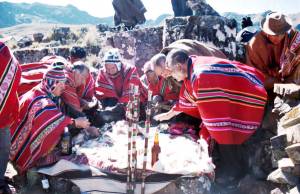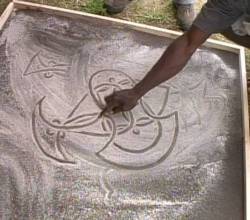Knowledge and practices concerning nature and the universe include knowledge, knowhow, skills, practices and representations developed by communities by interacting with the natural environment. These ways of thinking about the universe are expressed through language, oral traditions, feelings of attachment towards a place, memories, spirituality and worldview. They also strongly influence values and beliefs and underlie many social practices and cultural traditions. They, in turn, are shaped by the natural environment and the community’s wider world.

© Viceministerio de Cultura
This domain includes numerous areas such as traditional ecological wisdom, indigenous knowledge, knowledge about local fauna andflora, traditional healing systems, rituals, beliefs, initiatory rites, cosmologies, shamanism, possession rites, social organisations, festivals, languages and visual arts.
Traditional knowledge and practices lie at the heart of a community’s culture and identity but are under serious threat from globalisation. Even though some aspects of traditional knowledge, such as medicinal uses of local plant species, may be of interest to scientists and corporations, many traditional practices are nevertheless disappearing. Rapid urbanisation and the extension of agricultural lands can have a marked effect on a community’s natural environment and their knowledge of it; clearing land may result in the disappearance of a sacred forest or the need to find an alternative source of wood for building. Climate change, continued deforestation and the ongoing spread of deserts inevitably threaten many endangered species and results in the decline of traditional craftsmanship and herbal medicine as raw materials and plant species disappear.

© Vanuatu National Cultural Council
Safeguarding a world view or system of beliefs is even more challenging than preserving a natural environment. Beyond the external challenges to the social and natural environment, many underprivileged or marginalized communities are themselves inclined to adopt a way of life or a purely economic development model which are far from their own traditions and customs.
Protecting the natural environment is often closely linked to safeguarding a community’s cosmology, as well as other examples of its intangible cultural heritage.